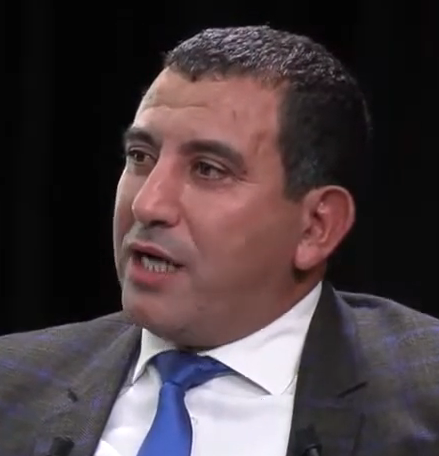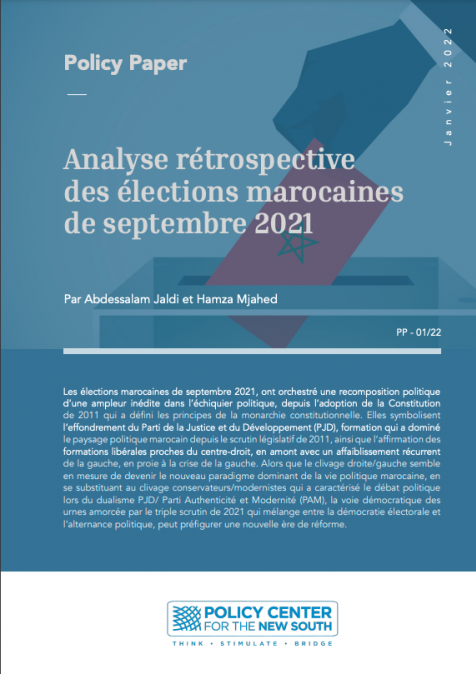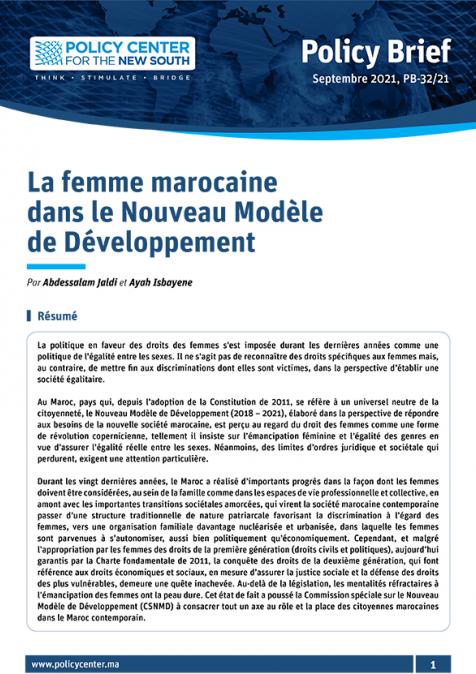Les Mardis du PCNS 14/09/2021: الثقة والمشاركة السياسية بعد استحقاقات 2021 في المغرب
يخصص مركز السياسات من أجل الجنوب الجديد برنامجه الأسبوعي "حديث الثلاثاء" لتحليل الثقة والمشاركة السياسية بعد استحقاقات 2021 في المغرب مع ياسين اصبويا، باحث في قضايا الشباب والمجتمع المدني. غالبا ما يؤكد تراجع الثقة في الأحزاب بالمغرب تدني نسب التصويت في الانتخابات، حيث لم تتجاوز تلك النسبة خلال الانتخابات التشريعية لعام 2016، 43 في المئة، وبلغت في انتخابات عام 2011، 45 في المئة، في وقت لم تتجاوز نسبة المشاركة في انتخابات عام 2007، 34 في المئة، وهي أدنى نسبة في تاريخ المغرب. لكن هاته الاستحقاقات أخرجت لنا نسبة مشاركة تتجاوز 50 في المئة رغم الجو العام لتدني الثقة ومرور سنتين من الازمة الصحية وتداعياتها على علاقة المواطن بالمؤسسات. كيف يمكن تحليل هاته المتغيرات؟ كيف يمكن تحليل المشاركة السياسية بين تدني الثقة في الاحزاب وارتفاع المشاركة في التصويت كفعل مدني؟ المشاركة السياسية هي أهم بكثير من المحطات الانتخابية، وبفضل دستور عام 2011 يمكن للمواطنين المساهمة في توسيع مشاركتهم السياسية عبر الديمقراطية التشاركية التي منحت آليات متقدمة للأفراد والجمعيات للمساهمة في التشريع وطنياً ومحلياً. كيف تمكن هاته الآليات الرفع من الثقة تجاه المؤسسات بما فيها المؤسسات الحزبية وهاته الأخيرة تحتاج أكثر من أي وقت مضى إلى تحديث عميق ونوعي على مستوى الخطاب والممارسة؟ أي تحول عميق في المشاركة السياسية وأي عملية إصلاح جذري لا يمكن أن يتما إلا عبر مشاركة حقيقية للشباب. ما هي توصياتك لإعادة الثقة في المؤسسات بما فيها الحزبية، خاصة لدى فئة الشباب؟ 30 دقيقة : الثقة والمشاركة السياسية بعد استحقاقات 2021 في المغرب تسيير: إيمان لهريش، مسؤولة عن المشاريع بمركز السياسات من أجل الجنوب الجديد المتدخل: ياسين اصبويا، باحث في قضايا الشباب والمجتمع المدني







